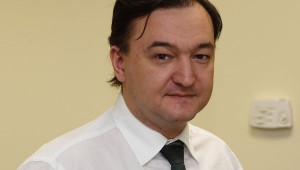By Brittney Hodnik
Impunity Watch Reporter, North America
KINGSTON, Jamaica – Amnesty International and other human rights groups are questioning the police tactics in use in Jamaica. Many accuse the Jamaican police of being “trigger happy,” and resorting to unnecessary use of guns.

According to Amnesty International, police have killed forty-five people so far in 2012. Twenty-one of those killings occurred in a six-day period. Over the ten-year period between 2000 and 2010, Jamaica reported more than 2,220 fatal shootings by police and only two officers have been convicted over that span.
Most recently, on 5 March, there was a fatal shootout between the police and other gunmen. According to The Associated Press, six people were killed including a 13-year-old girl named Nicketa and two elderly men who were caught in the crossfire. Residents of the community blame officers for the killings.
Since the incident, the area has been under curfew and patrolled by security personnel armed with M16s and other machine guns, reports The Associated Press. Nicketa’s mother and aunts showed reporters bullet holes evidencing the officer’s carelessness in shooting. The gun battle lasted approximately forty minutes.
Police Commissioner Owen Ellington tried to ease the tension by speaking out and trying to put the officers’ actions in context. According to Go-Jamaica, he explained, that between 2007 and 2012, criminals using illegal firearms murdered 5,829 people. Additionally, in that same period, 62 police personnel were killed on duty and another 127 were shot and injured.
The news report indicated that he stands behind the officers and he maintains that the officers only shoot in self-defense. According to Go-Jamaica, Commissioner Ellington said that he recently reminded cops of the guidelines for using lethal force and non-lethal force in confrontations with criminals.
On 9 March, the officers returned to the same community in search of illegal weapons and criminals. About 50 persons were detained and many remain in custody.
Amnesty International said, “The problem is that police continue to enter marginalized inner-city communities as if everyone there was a criminal suspect.” Many human rights groups want more accountability for the police. “If human rights abuses such as police killings go unpunished, it will only open the door for more abuses to take place,” said Chiara Liguori, a Caribbean researcher at Amnesty International.
Overall, the Jamaican police are caught between using lethal force in self-defense and to prevent criminals from using illegal weapons, and being overzealous, intruding where they should not. Liguori said, “[T]he Jamaican authorities must take decisive steps to fight impunity.”
For more information, please visit:
Associated Press — Jamaica Outraged by Police Killings — 9 Mar. 2012
Go-Jamaica — Denham Town Detainees Remain in Custody — 9 Mar. 2012
Go-Jamaica — Police Commissioner Speaks Out — 9 Mar. 2012
Amnesty International — Jamaica Must Tackle Shocking Wave of Police Killings — 8 Mar. 2012


